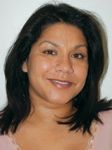- Case-Based Roundtable
- General Dermatology
- Eczema
- Chronic Hand Eczema
- Alopecia
- Aesthetics
- Vitiligo
- COVID-19
- Actinic Keratosis
- Precision Medicine and Biologics
- Rare Disease
- Wound Care
- Rosacea
- Psoriasis
- Psoriatic Arthritis
- Atopic Dermatitis
- Melasma
- NP and PA
- Skin Cancer
- Hidradenitis Suppurativa
- Drug Watch
- Pigmentary Disorders
- Acne
- Pediatric Dermatology
- Practice Management
- Prurigo Nodularis
- Buy-and-Bill
Article
How best to communicate with ...
Author(s):
"Usually, when kids go to the clinic, especially if they're little, they get so many vaccinations that when one takes off their clothes, they think they're getting a shot," explains Papri Sarkar, M.D., a third-year resident in Harvard's dermatology training program. "Also, I try to avoid using gloves unless they're clinically necessary."
TODDLERS

PARENTS
Many times the child will be crying or fussing with siblings to the detriment of parents' concentration. To minimize such situations, Dr. Sarkar recommends keeping toys and puzzles handy, along with staff who can help.
TEENAGERS
"Teenagers are the least likely to tell why they're not using their medicines or what really bothers them," she says. "We try to tease out of them what they're willing to do - which is sometimes very different, and if there's a certain event for which they want to look their best."
GERIATRICS PATIENTS
"A huge proportion (70 percent) of my Mohs surgery patients are over 65," says Steven S. Greenbaum, M.D., director of the Skin and Laser Surgery Center of Pennsylvania, Philadelphia. "One of the most important things I can try to do is put them at ease; to take away some of the imagined fears" that spring from dwelling on worst-case scenarios.
To that end, he produces an 11 page skin cancer pamphlet that he usually mails to patients before consultations.
"It's often easier to understand something if one can read at one's own pace or have a relative explain it," Dr. Greenbaum notes.

"It goes through a definition of Mohs surgery and how the procedure is performed, including how we examine tissue under a microscope. We walk them through a typical day of Mohs surgery."
The pamphlet also covers post-surgical concerns including pain, bleeding and potential complications, along with the importance of follow-up visits.
"Patients like it. The written word seems helpful to people, especially those who may suffer from hearing loss."






